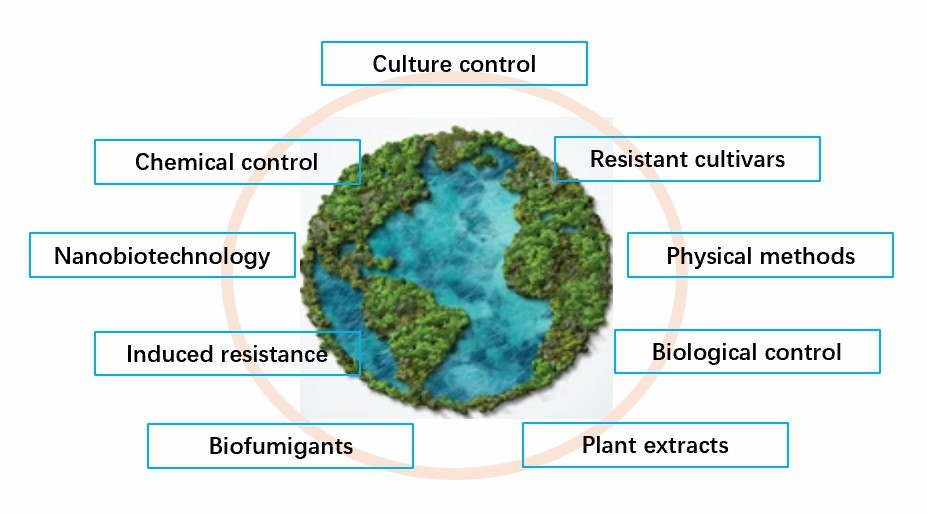Nematodes are microscopic, eel-like roundworms. The most troublesome species are those that live and feed within plant roots most of their lives and those that live freely in the soil and feed on plant roots; they are major pests of both temperate and tropical agriculture. Breeding for resistance has been a major goal for many important crop species like soybean, potato, tomato, and sugar-beet. Besides, we discuss agrotechnical, chemical, and biological measures for the control of plant nematodes.
Lifeasible, as a leading global company, is committed to helping our customers achieve effective and successful research. We provide a mechanism analysis of plant response to nematodes. In addition, we deliver reliable results and reports on time to our customers worldwide.
 Fig.1 Strategies of nematode diseases management infographic.
Fig.1 Strategies of nematode diseases management infographic.
Lifeasible is always devoted to providing high-quality and satisfactory service to our customers. If you are interested in our services or have any questions, please feel free to contact us or make an online inquiry.
Lifeasible has established a one-stop service platform for plants. In addition to obtaining customized solutions for plant genetic engineering, customers can also conduct follow-up analysis and research on plants through our analysis platform. The analytical services we provide include but are not limited to the following:
Get Latest Lifeasible News and Updates Directly to Your Inbox
Adaptive Evolutionary Mechanism of Plants
February 28, 2025
Unraveling Cotton Development: Insights from Multi-Omics Studies
February 27, 2025